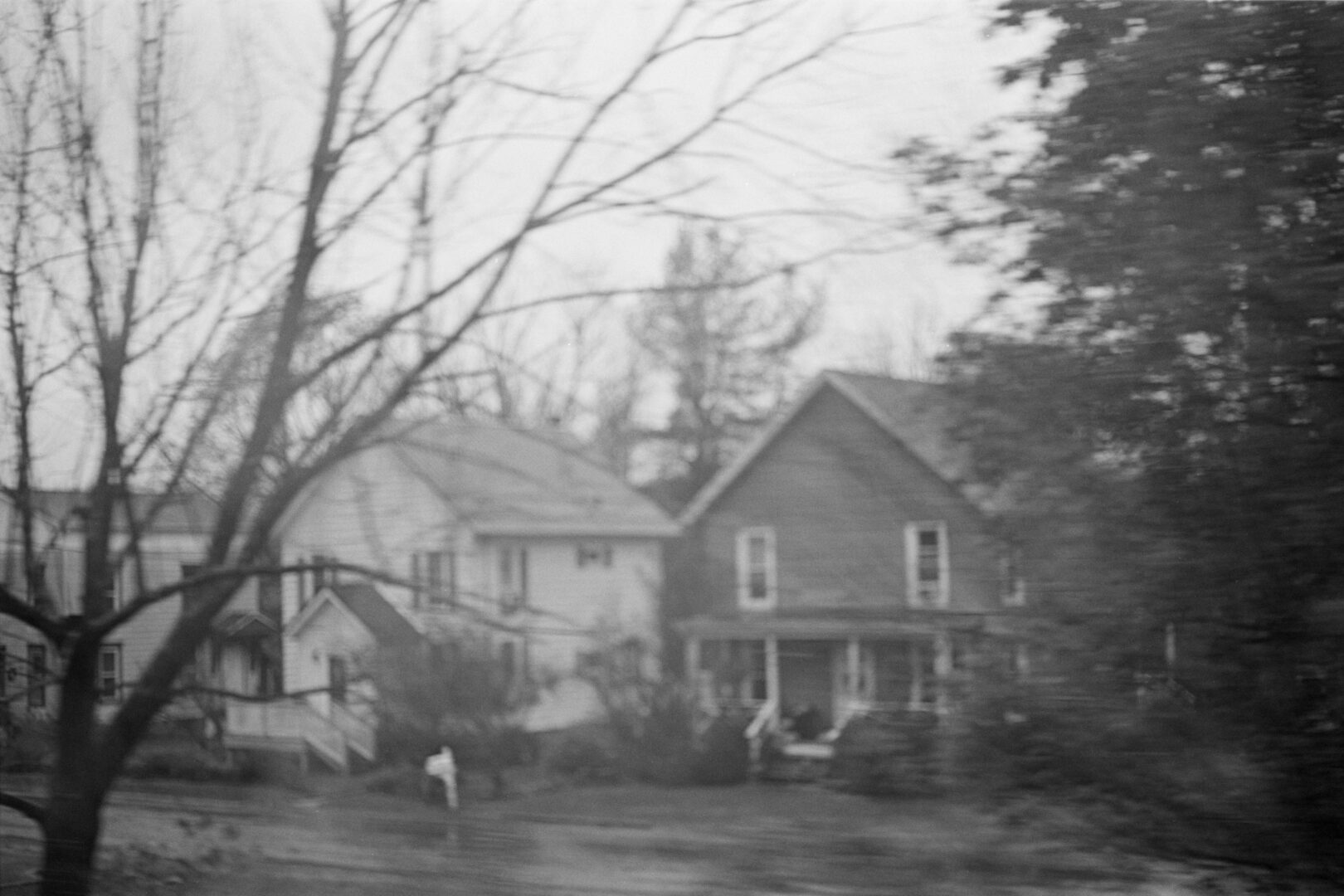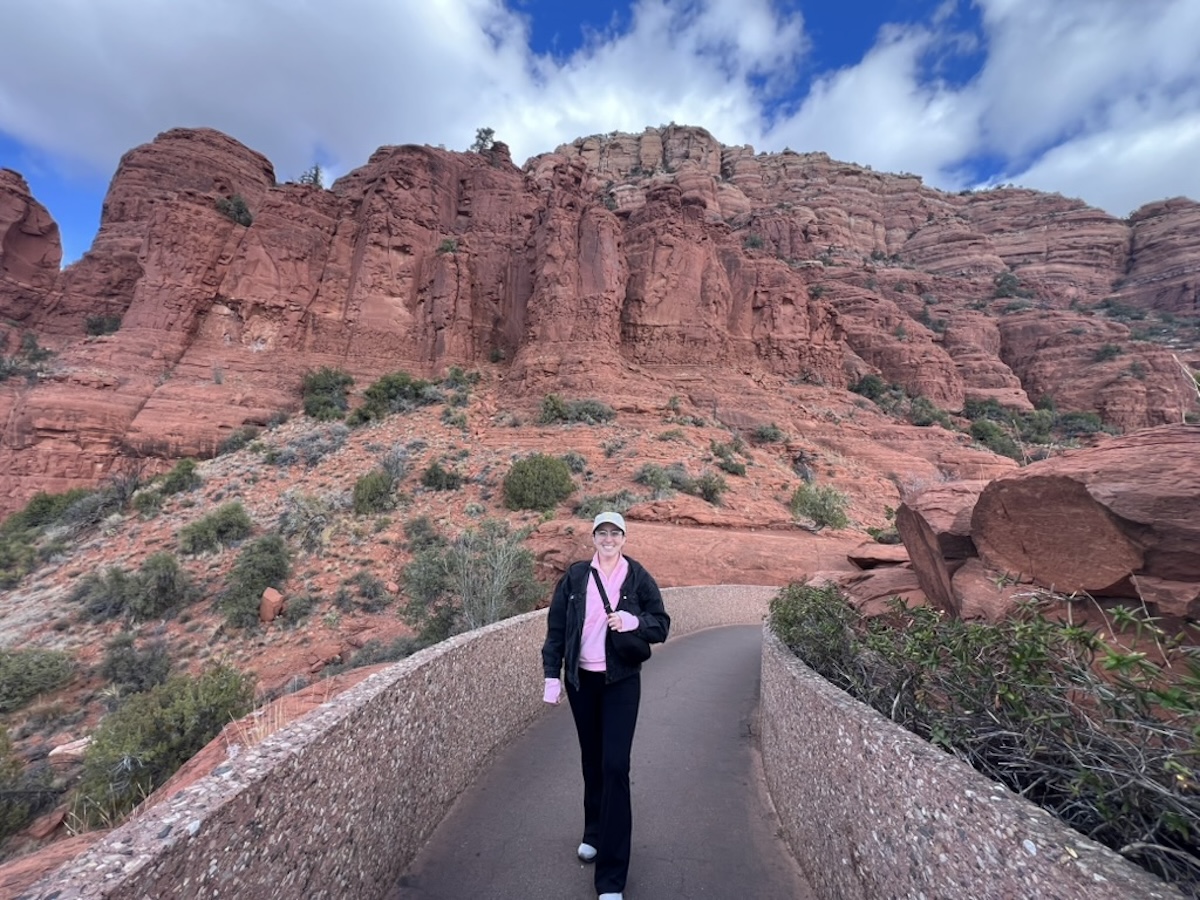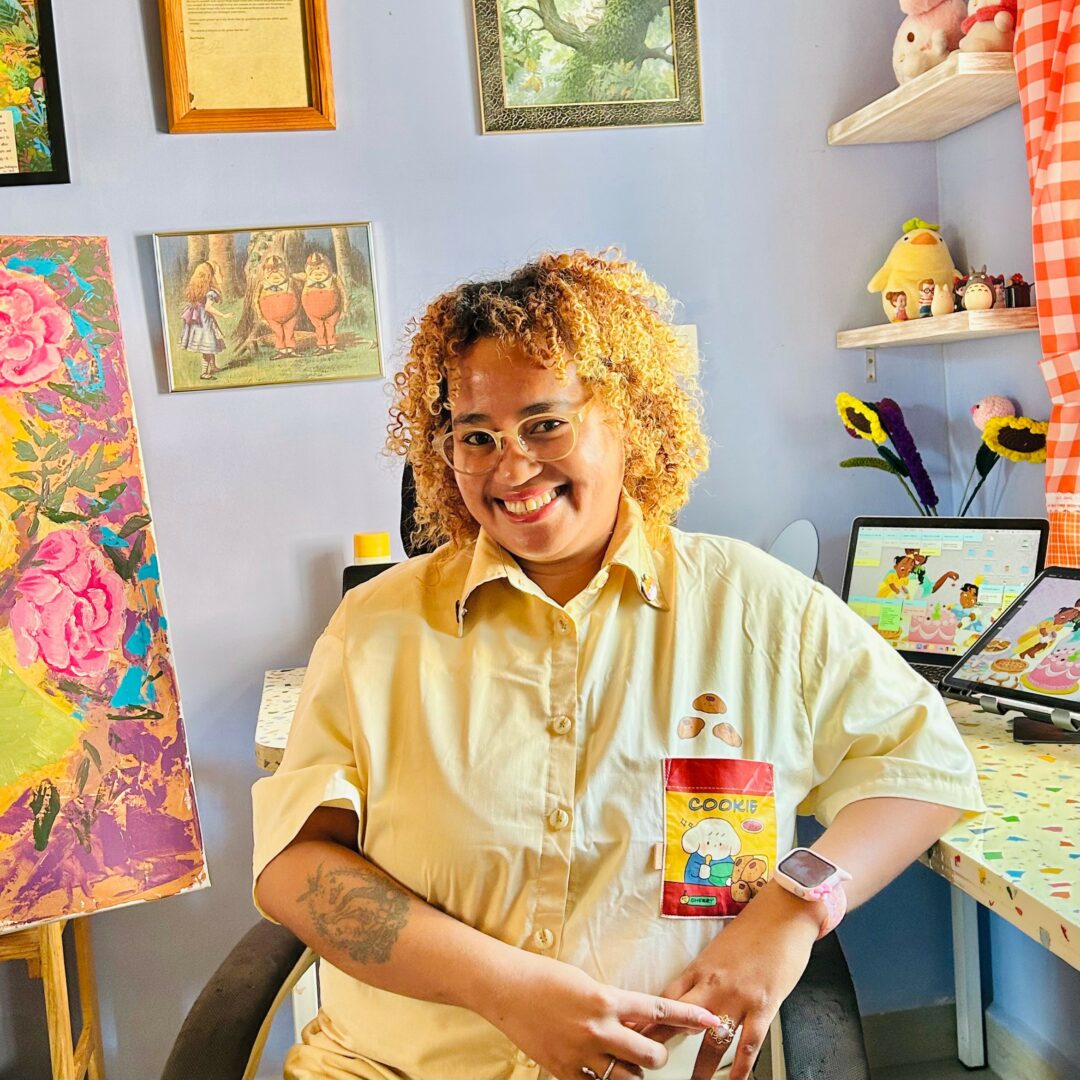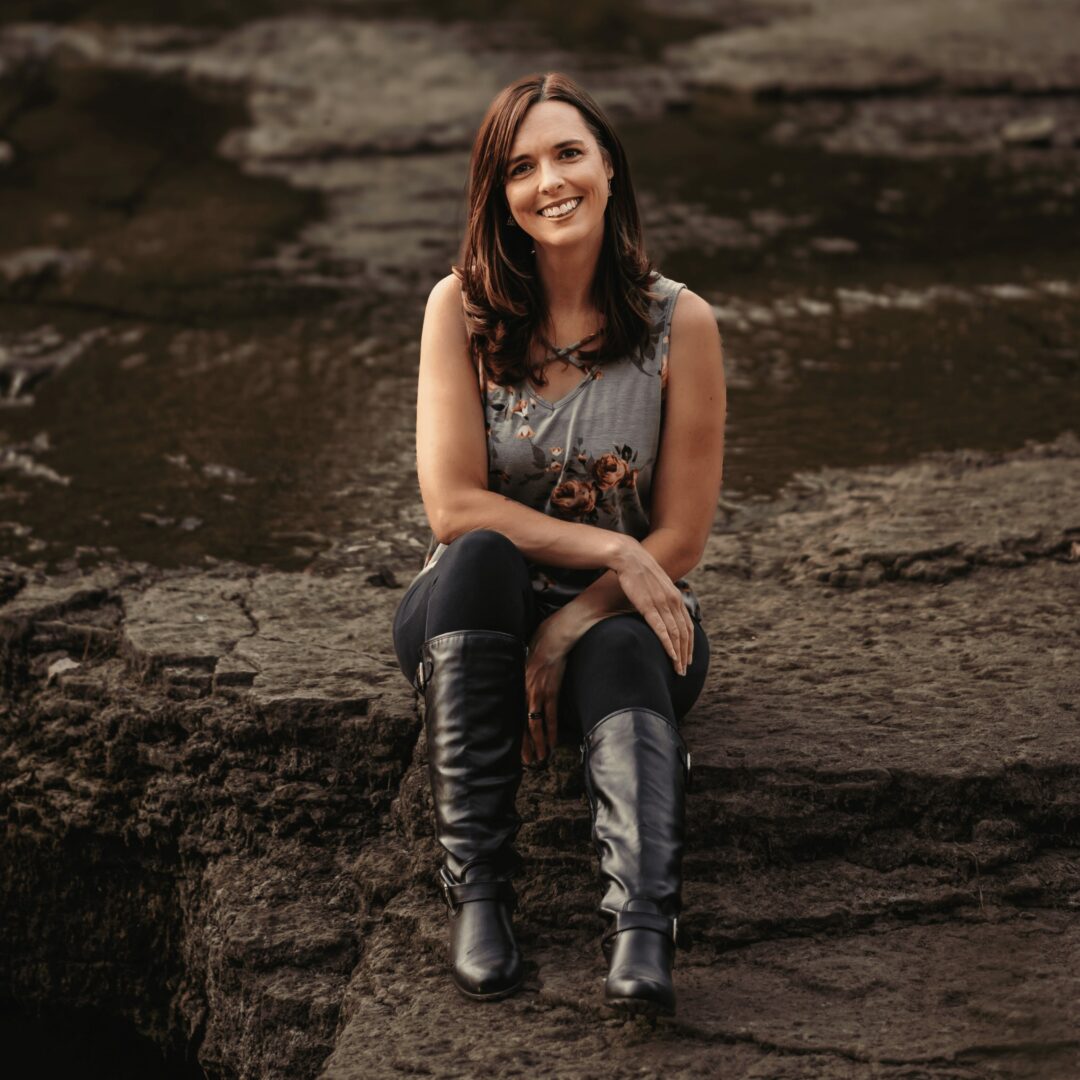We caught up with the brilliant and insightful Noy Finer a few weeks ago and have shared our conversation below.
Noy, so many exciting things to discuss, we can’t wait. Thanks for joining us and we appreciate you sharing your wisdom with our readers. So, maybe we can start by discussing optimism and where your optimism comes from?
Whenever I feel lost, my mom always tells me to take things into perspective. Sometimes life’s challenges can seem scary or overwhelming, to the point where it feels impossible to find a way out. And yes, it’s totally okay to freak out for a moment. But then, I let the negative thoughts out, take a step back, and look at things from a broader perspective. This shift can suddenly bring clarity, providing a clearer view of everything and helping me feel more optimistic. I also try to be compassionate to myself, because it’s something we often tend to forget. I apply this approach to both past and current stressful situations, and I find it very helpful.


Thanks, so before we move on maybe you can share a bit more about yourself?
I am a New York City-based photographer, originally from Moshav Yarkona, a small agricultural village in Central Israel. I come from a mixed-cultural background, with roots in both Polish-Hungarian and Turkish-Iraqi heritage. Growing up surrounded by nature and community life, my upbringing has deeply influenced my work, which often explores themes of family, emotional landscapes, and the connection between Self and Home. With a background in drawing, painting, and literature, my approach to photography is shaped by a multidisciplinary perspective, blending fine art and storytelling in my practice.
I am a recent graduate of the Creative Practices Program at the International Center of Photography (ICP) in New York City, where I had the opportunity to develop my main long-term project, “לְבַד (alone),” which explores the emotional complexities of dealing with personal trauma, drawing from childhood memories and challenging family dynamics. The inspiring creatives I met and worked with at ICP gave me the courage to create this work and tell my story.
Another project I’m currently working on is “fragments of home,” which explores the growth involved in adapting to a new space while preserving one’s sense of self. It reflects my personal journey with my partner, Orian, as we define our space by blending elements of our past with our present environment. Through this process, I seek to reconnect with my roots while nurturing my sense of self in our newly defined ground.
Comfort is important in my life and in my photography, from the way I dress to the way I create, and I try to bring that when I photograph other people too; whether it’s in the surroundings or the clothes, it all circles back to feeling natural, easy, and real.


There is so much advice out there about all the different skills and qualities folks need to develop in order to succeed in today’s highly competitive environment and often it can feel overwhelming. So, if we had to break it down to just the three that matter most, which three skills or qualities would you focus on?
Thinking about my journey, the first thing that comes to mind is self-love. We know ourselves better than anyone else, which is why it’s so easy to focus on our flaws and imperfections. That’s also why it’s so important to appreciate the fact that you are a creative person with the urge to make art. You are the only “you” in this world, and what you create is one-of-a-kind. Love yourself and your work. Take inspiration from others, but don’t copy—embrace authenticity because that’s what will set your work apart, and it’ll naturally translate to others. My advice is to build confidence in yourself and stay true to your creative identity.
Another thing is learning to listen while also knowing how to filter. Be open to feedback, but don’t feel like you have to apply everything you hear. If someone’s advice adds value to your work, embrace it; if it doesn’t, let it go. Don’t let negative comments discourage you, use them as an opportunity to learn and grow instead. I think in the art world, and especially in New York, developing a thick skin and using criticism as a tool for improvement is a real advantage, rather than letting it become a reason to doubt yourself. Focus on listening to those whose work you admire, rather than those whose work you don’t connect with. This also ties into asking questions, which is something my mentors always encourage me to do. It’s such a simple thing, but it can really help you better understand your work and how your audience interprets it. Why am I making this work? What do I want to say? Is it being received the way I envisioned, or is it developing into something new? I constantly ask myself these questions to better understand the intentions behind what I make, and it really helps me grow.
Lastly, I think building a strong support system is essential. Surround yourself with people you trust—family, friends, or loved ones who believe in you. Their support can be incredibly powerful and motivating. At the same time, focus on being both social and professional. Make genuine connections with others in your field, not just for opportunities but to build meaningful relationships. Go out, introduce yourself—you never know who you’ll end up meeting. Even if nothing comes out of it, you’ll know within yourself that you’re taking steps for your career, pushing yourself out of your comfort zone, and showing up for yourself. Being an introvert, this is something I still work on and try to do more often, and I find it very helpful.


Thanks so much for sharing all these insights with us today. Before we go, is there a book that’s played in important role in your development?
I cannot stop recommending the book “Big Magic” by Elizabeth Gilbert to literally everyone I know. This book came to me at such a pivotal moment in my life, personally and professionally, and it helped me approach my artistic life in a much lighter and self-forgiving way.
“Big Magic” is essentially about guiding one to embrace creativity, overcome fear, and equipping oneself with the courage to live a creative life by pursuing curiosity and inspiration without being paralyzed by perfectionism or the pressure to succeed. Over the past five years, I’ve read the book three times, and even though I was in a different life situation each time, it always reminded me to keep doing what I’m doing and that my art matters, first and foremost, to myself.
I’m currently halfway through my fourth read, and I recently came across a chapter discussing how sending out work, even if it’s not completely perfect, is still “good enough” and deserves to be shared. Don’t overthink or tear down your entire project over one tiny detail—keep going with it and publish it because you believe in it and love it as a whole. Even if someone notices a flaw or has something to say, they will eventually move on with their lives because they are busy with their own concerns too.
Gilbert’s broad perspective and light, engaging approach help ease the pressure of only creating work that “matters” or is “profitable.” She reminds us that it’s okay—even necessary—to keep making art, even if it means having a “day job” to support a creative life. We should always make room for creativity and create from a joyful place, out of love for ourselves and our craft.
Contact Info:
- Website: https://www.noyfiner.com/
- Instagram: https://www.instagram.com/noyfiner_photography/?hl=en
- Linkedin: https://www.linkedin.com/in/noy-finer/


Image Credits
Noy Finer
so if you or someone you know deserves recognition please let us know here.




